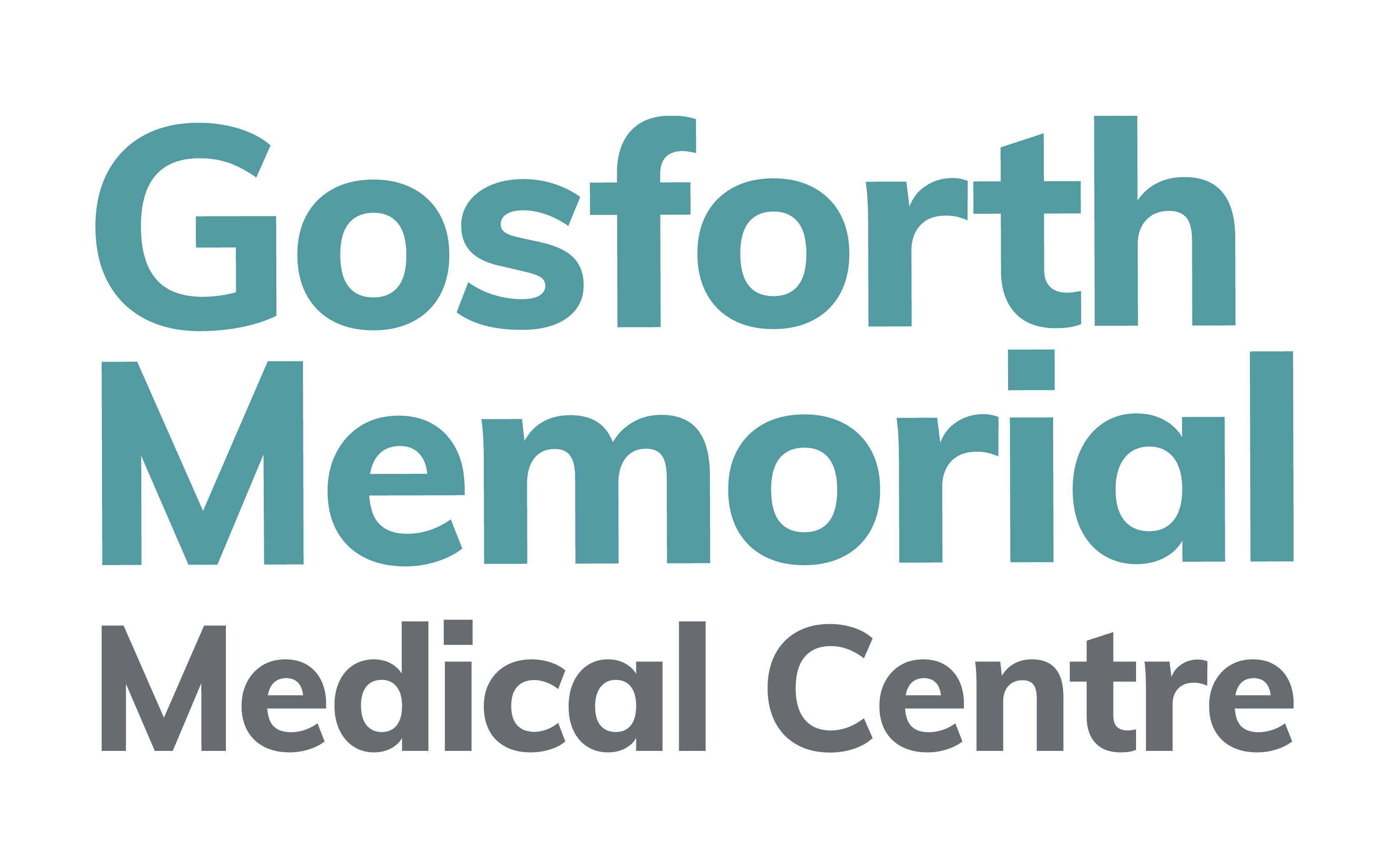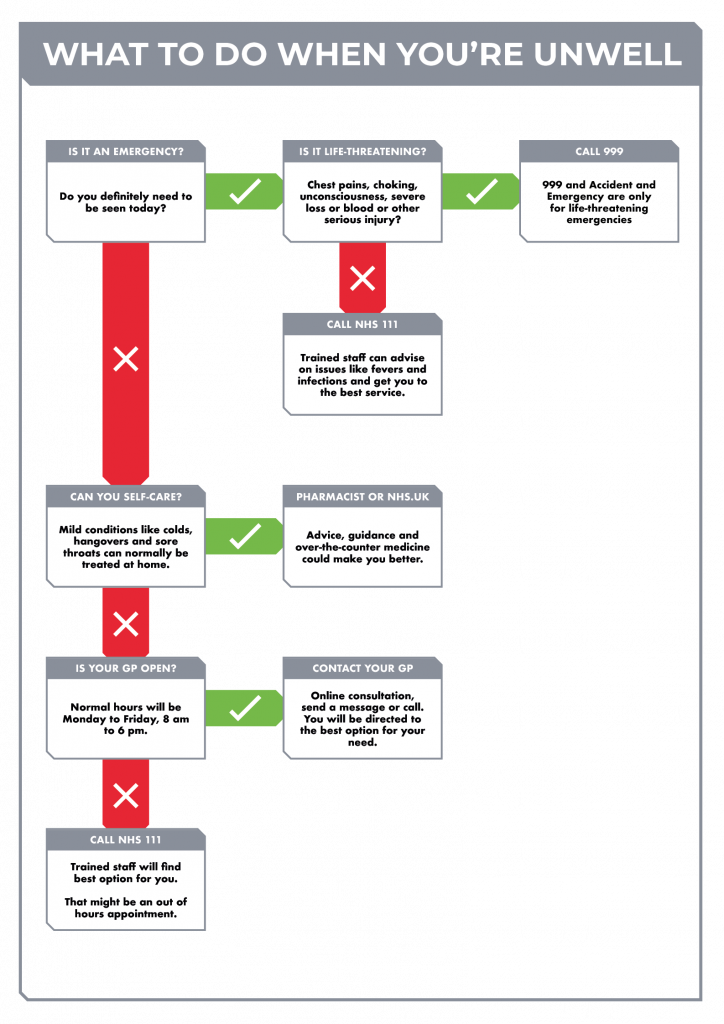What to do when you are unwell
If you need medical advice, it might not always be obvious the best way to get it, especially if you’re unwell, in pain or in distress.
We want to make it as simple as possible for you to get the right help as soon as possible.
You can ask some simple Yes/No questions before seeking help for yourself or someone else.
Firstly, is it an emergency? By emergency, we mean an acute medical issue that needs attention as soon as possible.
If it is an emergency, the next question is about severity: is it a life-threatening situation?
This could include chest pains, loss of consciousness, choking, fitting, breathing difficulties or severe bleeding, allergic reactions, scalds or burns.
If this is the case and you think someone’s life is at risk, you should call 999 at soon as possible.
For emergencies that are not life-threatening, then you should call NHS 111. A trained advisor will ask about the situation and direct you to the best option.
This could be self-care, your GP, a local pharmacy, walk-in centre, the emergency department, or we’ll arrange for an emergency ambulance if required.
Returning to the start, if the situation isn’t an emergency, the next question is whether you can treat yourself at home.
Colds, sore throats, hangovers and other mild conditions can be treated at home or with the help of a community pharmacist. Go to 111.nhs.uk and answer the questions about your symptoms.
If it is safe to treat yourself, you will be advised on what to do. A local pharmacist might be able to help with specific symptoms. You don’t need an appointment to get help from a pharmacist.
In cases where you can’t care for yourself, then your next option is dependent on time.
Your GP should be your first port of call if they are open. As a rule, GP surgeries will be open from 8 am to 6 pm, Monday to Friday. Keep in mind there may be extended hours or periodic closures for training.
Calling or visiting your GP in person may not always be the best or quickest option. Online options to send a message, get advice or start a consultation can often get your issue resolved faster.
You can use digital options to send a message outside of regular opening hours, but the practice may not respond until they are open.
When the practice is closed, you should call 111. Trained staff will find the best option for you, which may include a scheduled appointment at a treatment centre.
By knowing the best thing to do when you are unwell, you will be able to get to the best possible outcome quickly and easily.

